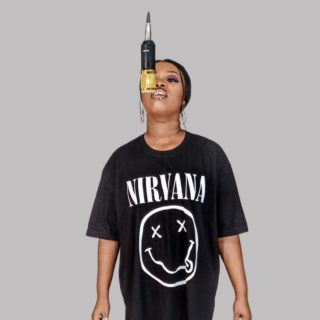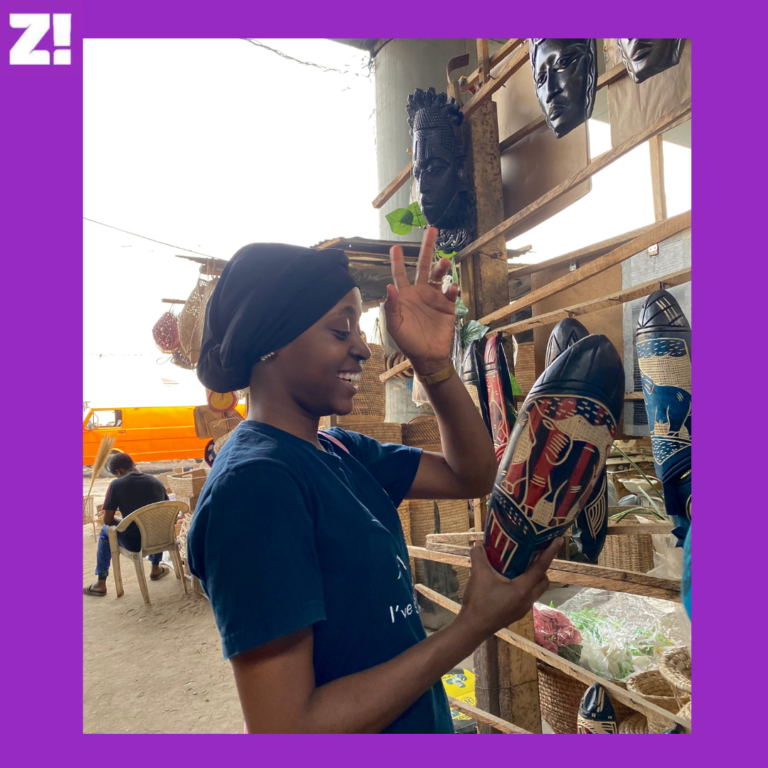Creator Spotlight is a weekly series celebrating young Nigerians in the creative industry doing unique things. Everyone has a story, and Zikoko wants to tell it.
Fareedah Abdulsalam is a lifestyle creator who’s also killing it at marketing for a startup firm. She’s into many different things, including food, fashion and interior design. People tell her that she’s funny and always laugh at her own jokes. She’s a big fan of Asian culture and reads a lot of Asian literature. Her food advice is for people to try jollof rice with seaweed because it slaps; according to her, if you don’t like it, you don’t have good taste.
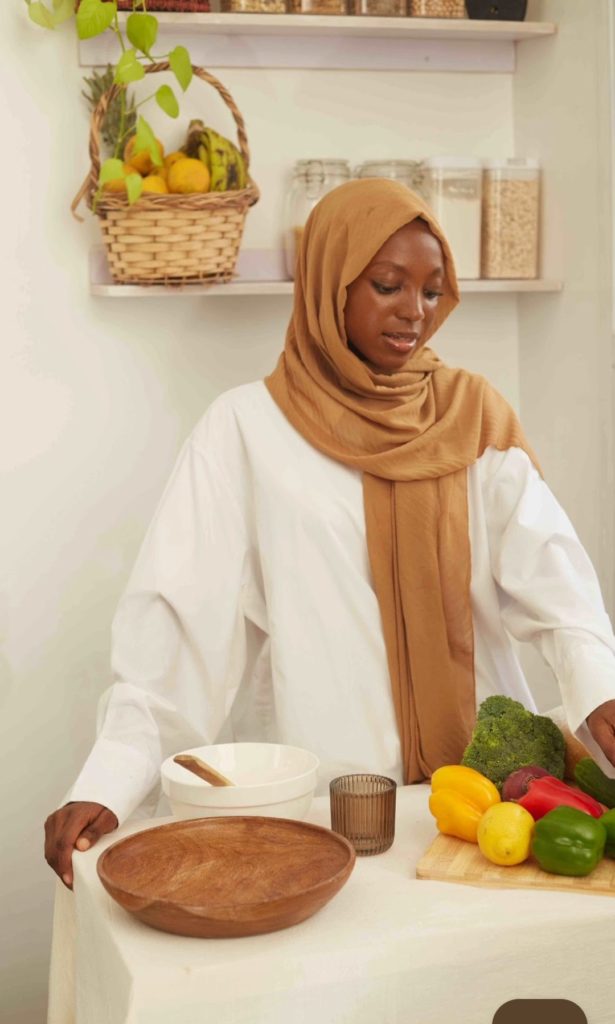
What Asian literature do you read?
I read a lot of books by Haruki Murakami. I’m reading Norwegian Road for like the seventh time. I like his writing style; he can be cheeky, but he makes his characters feel real. He’s my go-to when I feel overwhelmed. Norwegian Road is a story of loss, love and pain. It’s a young adult book, and I can see myself as the main character. It’s not an easy read, especially if you’re reading the book for the first time, but it’s very relatable for me. Every time I pick it up, it’s like I’m reading it for the first time.
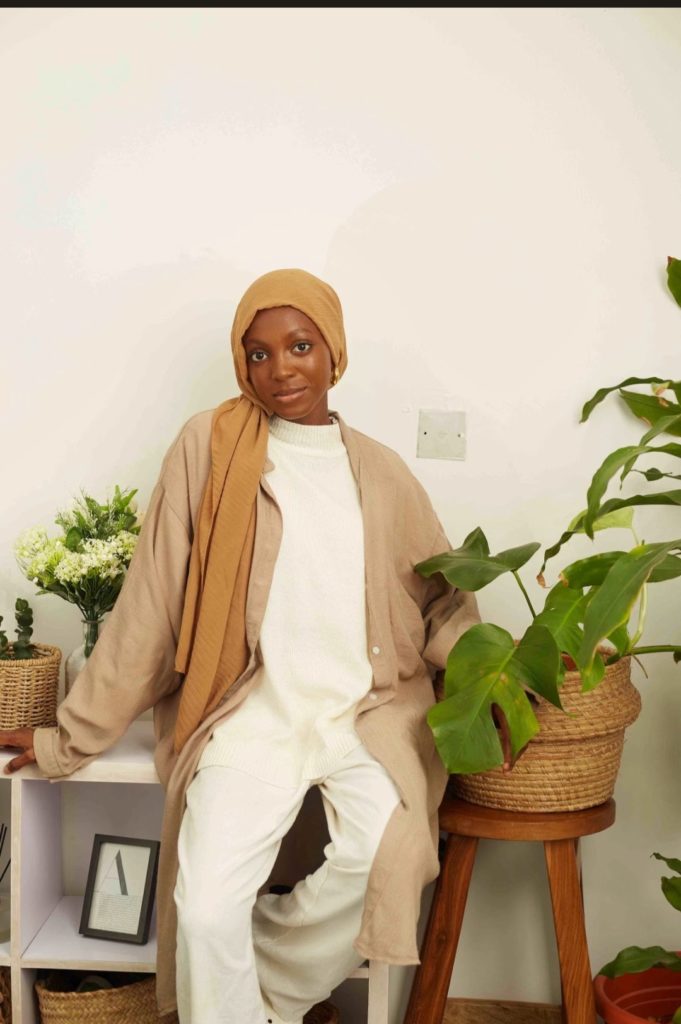
Are books a big choice of escape for you?
Books are important to me. I used to read feel-good, cheeky romance novels every night before bed. Recently I’ve opened my eyes to many different genres and improved my reading culture. But my ultimate source of escape is music. I listen to a lot of hip-hop, EDM and jazz. If I weren’t into everything I already do, I would be a DJ.
Who listens to jazz? Your uniqueness is second nature at this point
For starters, my name, Fareedah, means “unique”. Since I was young, I’ve always wanted to do things differently. I’ve never been a follow-the-crowd type of person. Even if it’s tiny, I must be different.
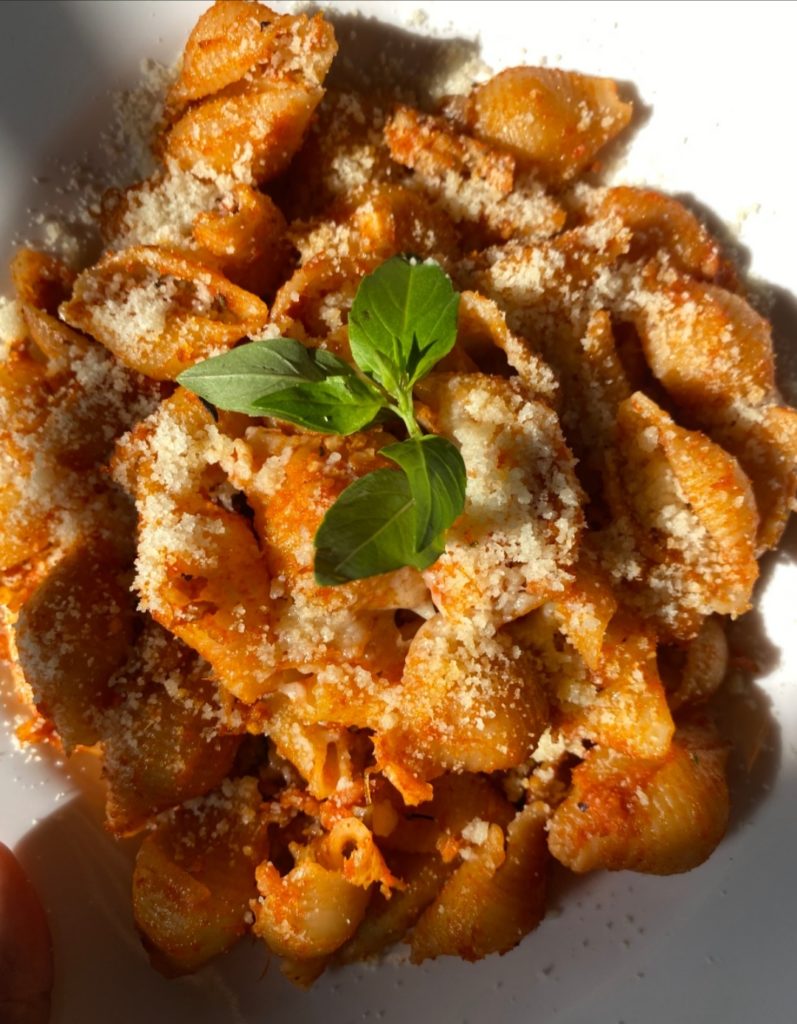
Speaking of different, it’s rare to see a young Nigerian pick healthy cooking as a content niche. How did that happen?
I started posting food and talking about recipes because I discovered a vast gap in the misinformation about healthy eating culture in Nigeria. You’ll tell someone you want to start eating healthy, and they’d think it means salads and ice cream deprivation, but it goes beyond that. My page teaches people how to live their best healthy lives, based on the Nigerian palate, and without compromising on the food they love.
When I started posting my videos on TikTok, it was just about creating cute content of the food because I’m all about the aesthetic life. I found I enjoyed cooking, how colours come together to make a sumptuous meal, and people were interested in my content, even though it looked different. It turns out many people don’t know they can eat healthily in Nigeria, and to be fair, I grew up eating efo and ewedu, so I would’ve been shocked if anyone told me I could make soup from celery and carrots too.
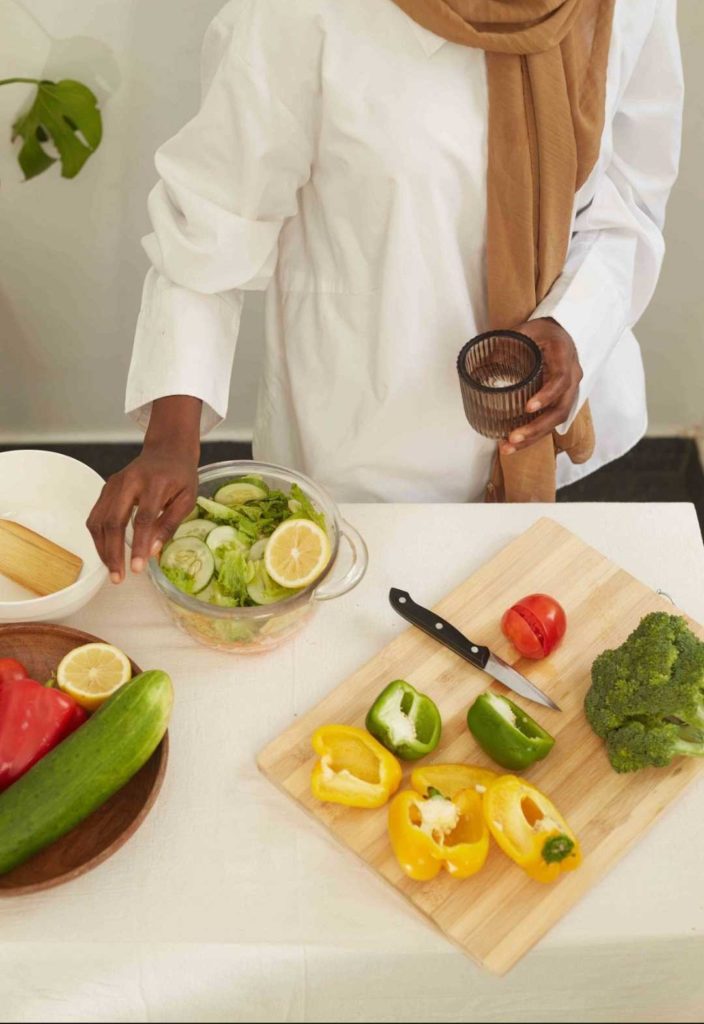
Why was teaching people about healthy food options important to you?
I’ve always been fascinated by how human beings interact with food: how people can eat a particular food every day without getting tired, and the power it has over us. I was so into it I added food science and technology as my third choice when I wrote JAMB. Plus, my mum was a caterer. She’d make these elaborate meals for the family, for example, moin-moin, and all I’d have to do is double the nylon for the beans puree.
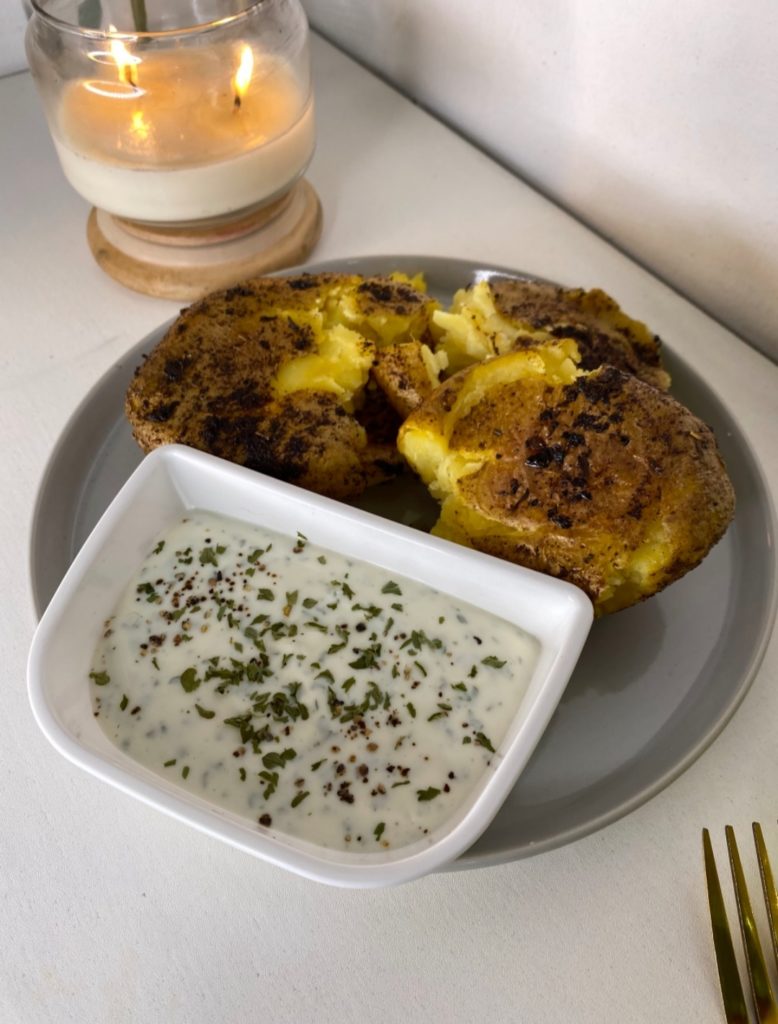
So, you’ve always been surrounded by food?
Yes, but I didn’t learn to cook until I was 18. I remember boiling rice when I was younger and burning it. I’ve also dealt with my fair share of food problems. I had an eating disorder as a teenager and was diagnosed with ulcer shortly after. I’ve also had appendicitis, so I’ve always been particular about things I put in my body because I know they can have negative effects.
I was tired of going to the hospital and complaining about my gut health, so I took matters into my own hands, researched, and took a nutrition course in uni. Then I looked for foods like broccoli and celery around me. I was shocked at how easily I found them. I wondered why my mum never cooked foods like those.
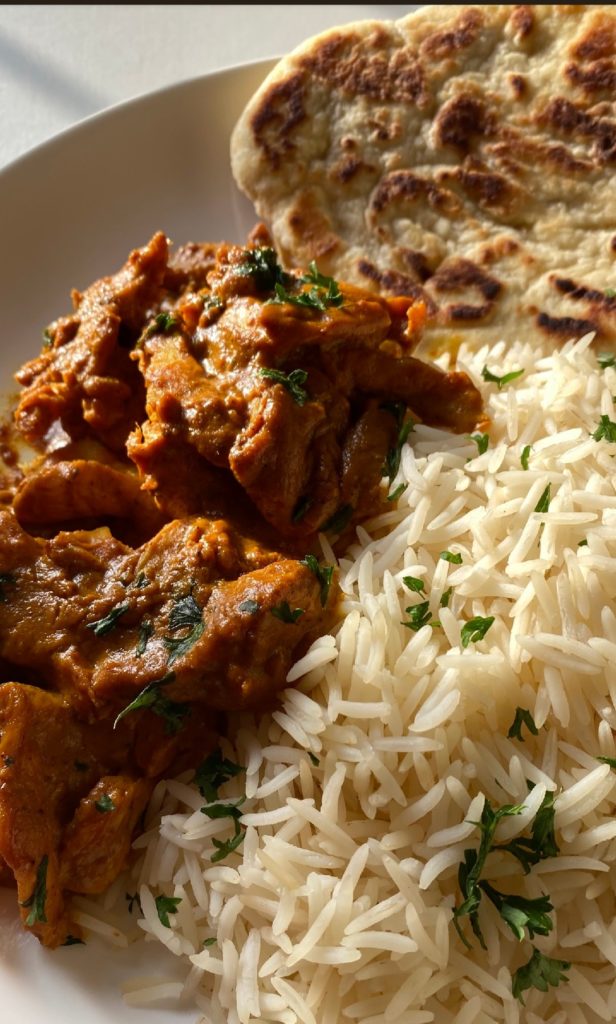
How’s your relationship with food now?
I told myself I couldn’t keep going to the hospital for food problems and had to do things differently. For example, I did a January challenge and didn’t eat rice for 30 days; my body felt amazing. That month, I had the best menstrual flow, and my skin was glowing. My relationship with food is much better. Even my conversation around it is different.
A lot of your content is on different oatmeal recipes. It’s your good taste for me
They’ve even started calling me “the oat babe”. I especially like oatmeal, and I wish people appreciate it more. It’s so versatile. How can you hate it? It’s rich in fibre and fills you up quickly. Oat is more than adding sugar and milk. When I started sharing my recipes, people kept expressing shock. I understand eating rice every day is culturally ingrained, and it takes a lot to get out of that mentality. I’d make a simple pasta meal and get comments saying, “Where’s the stew/meat?”
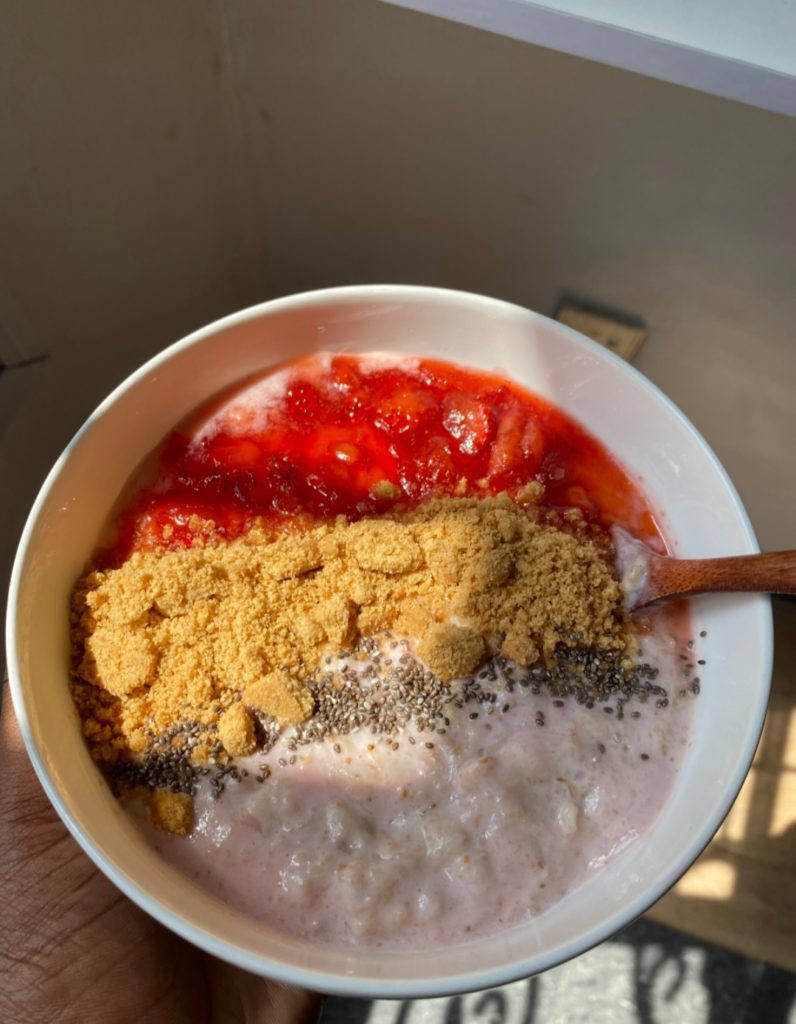
How many oat dishes have you tried?
30. I have this note app where I came up with over 50 oat recipes and other things I want to try. I’ve shared some, but I haven’t had time to shoot more. Now, I have a website, so I’ll upload some more soon.
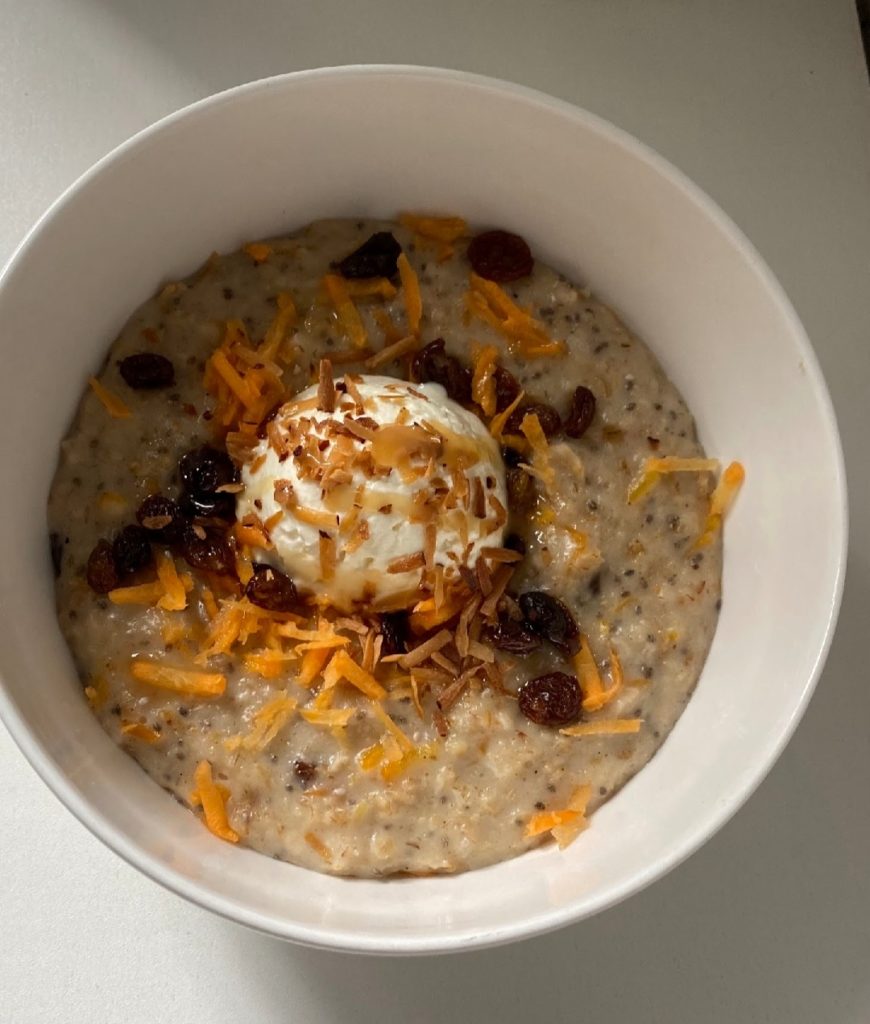
A website sounds great. What should we expect?
I’ll write about lifestyle, house plants and interior design tips. I design houses on the side. I do it well and have had people hire me to redesign their spaces. It’s a thing I take on when I have time. After the lockdown, many people wanted their space to look nice, to spark joy or make their videos look nice. I wake up and move things around my house almost daily, and my friends always complain. You can come to my house today and find my bed in my living room. That’s how much I love interior design.
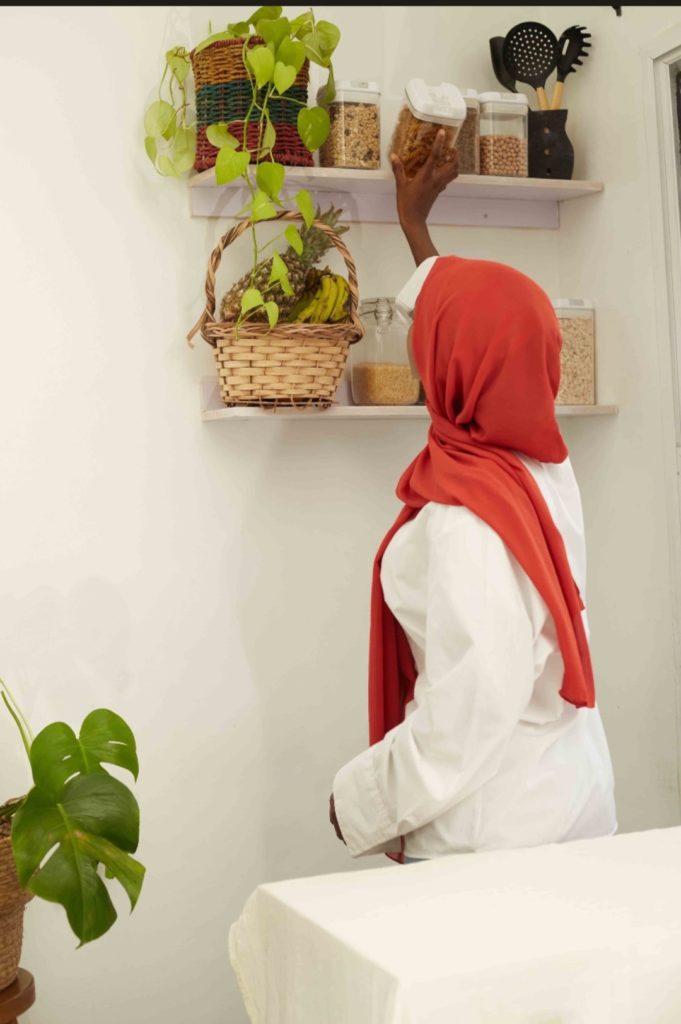
I feel like we don’t have the same 24 hours. How do you make time for all your passions?
Omo, I sometimes suffer from working on one thing even when it takes me hours and wastes my time. My 24 hours aren’t enough. It sounds like many things at once, but I give everything unequal attention.
You sound more human now, but to crown it, do you have many food fails?
The omo is long. I’ve tried many food recipes that tasted horrible and didn’t look good. That’s why I always try recipes I find online and taste them before I make a video, so people don’t drag me for recommending nonsense. I won’t recommend what I can’t eat. For example, I tried to make pesto pasta and didn’t have basil. A recipe online said kale tasted equally amazing. I was so confident it would be sweet that I didn’t taste it before serving it to guests. My friends were like, come and taste this thing. I tasted it and couldn’t swallow it.
That’s why when people recommend things for me to make, I avoid them. I can’t make my content around other people’s requests except if it’s a series. My series are usually well-planned as opposed to my random videos.
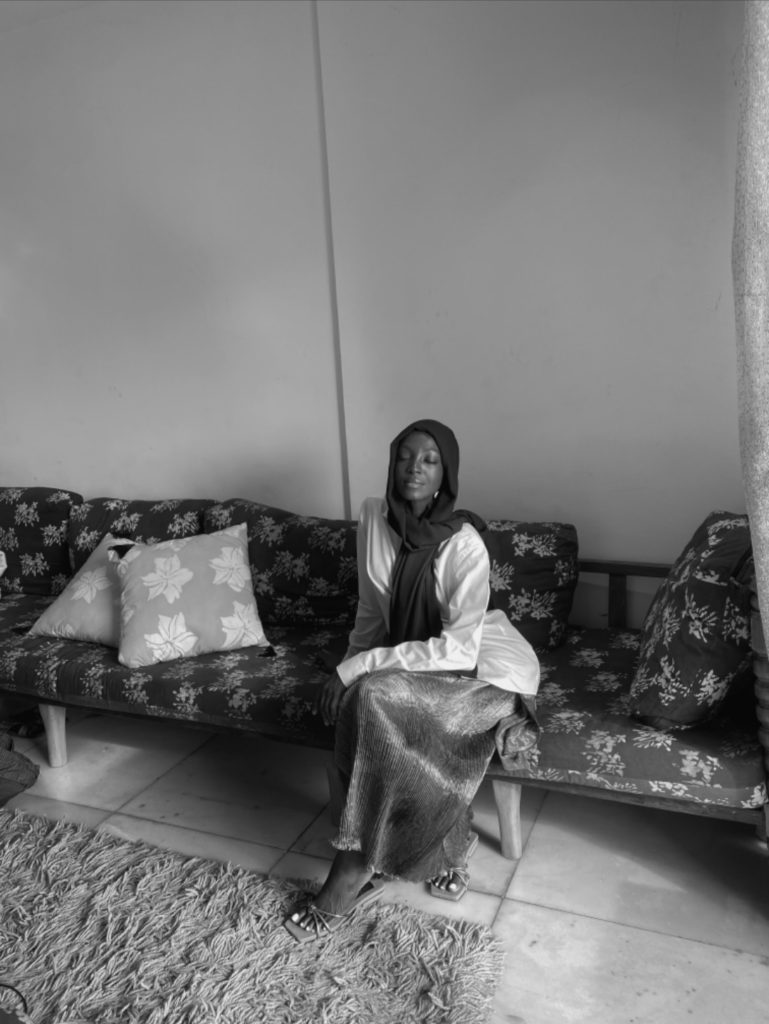
What about food wins?
My “What I Eat in a Day” (also known as WIEIAD) series has to be my favourite. I can’t say I pioneered it in Nigeria. Still, the series has inspired many people to share their daily meals — something I’d rarely seen from Nigerians on social media before then —, and it makes me proud.
Who is your content for?
Everyone. As a young person, I know how important healthy eating is, and I’m also aware of how expensive groceries are in Nigeria. I don’t want people to spend too much on something they’d hate. I do everything with intention, and the way I share tips and reply to comments reflects that. After making my account public, I started making food videos in mid-year 2021, and I decided to take my content seriously. It meant replying to comments, interacting and building a community of people interested in what I do. People have told me my account isn’t growing as fast because I do this one thing, recommending healthy recipes as opposed to native Nigerian meals. The biggest misconception people have is my recipes are expensive to recreate. I’m 22, living alone, and I can’t buy expensive things. It goes back to people’s misinterpretation of healthy living. That’s why I’m constantly educating people, even though I understand that access problems and food insecurity stops people from exploring new foods.
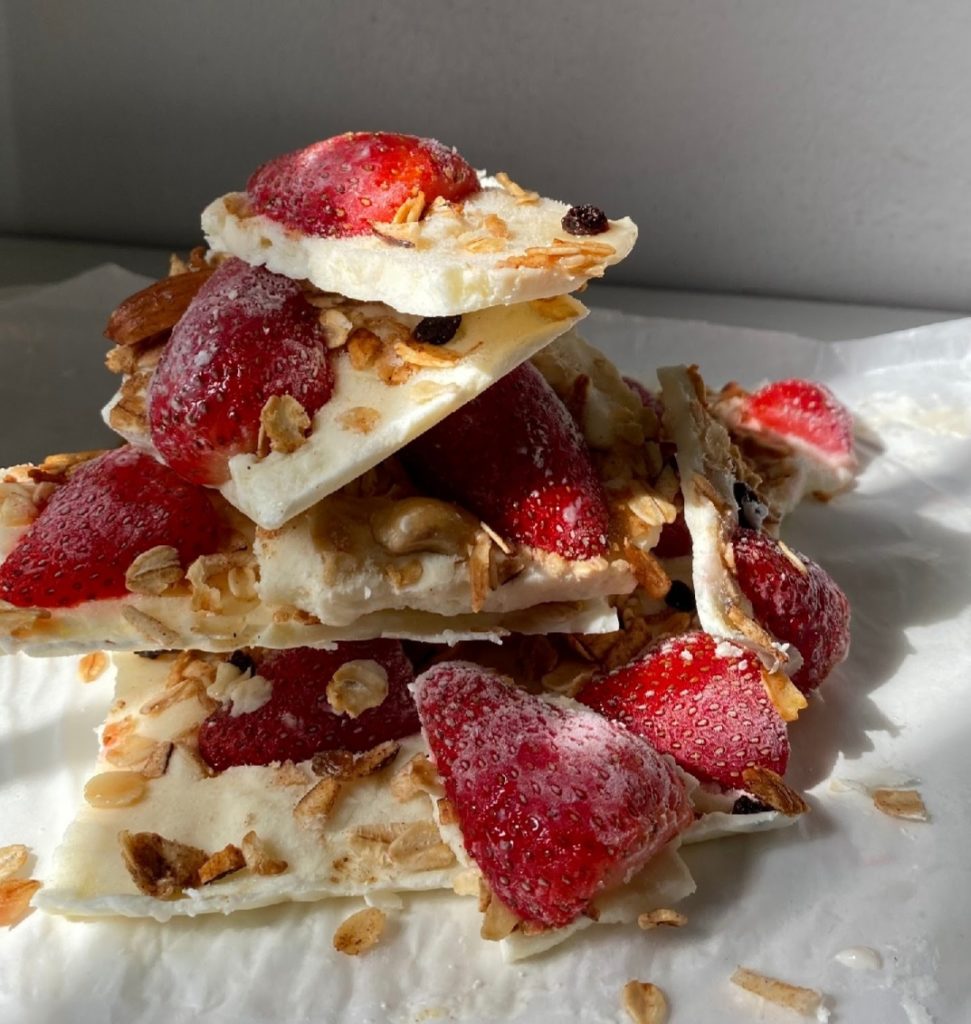
What do your groceries for a month look like, though?
I can’t track that because, as a food blogger, I tend to make meals outside my usual weekly meal plan, or if I don’t get a recipe right the first time, I have to try it again. I also make food for my friends — a perk of being friends with me — so it’ll be hard to track the cost. But most meals would have things like oatmeal, sandwiches or wraps, maybe a rice dish. I’d go to the local market, which is always my go-to. I buy a little of everything while considering the electricity situation in Nigeria. I’d buy a bulb of lettuce for ₦200, parsley for ₦100 and local or imported lemons from those Hausa men who sell in barrows. I buy bell peppers from ShopRite at three for ₦900. There’s this soup pack with peppers, corn and green beans, and it goes for less than ₦1k. I have a “grocery haul” highlight on my Instagram to give people insights on costs.
It does sound a lot cheaper than I expected. Does what you do feel fulfilling?
It feels worth it, especially when people send messages telling me how my content helps them, and I have gotten a lot. I wrote a book earlier this year, during Ramadan, because I wanted people to spend less time trying to figure out what to eat when they break their fast. The book had about 90 food inspirations. Even though I don’t have a lot of followers, the quality of people I have are enough. I can’t disclose the amount, but I sold a lot of copies. Even non-Muslims bought it, and the feedback inspired me. It felt good to see that I’m making an impact. What you put in your body affects everything positively or negatively. Even for myself, my skin is glowing, and I feel good. My mental well-being is great. I’ve seen shege, but the beautiful life people think I have is real, not just for the gram. It’s giving rich in a “fake it till you make it” way.
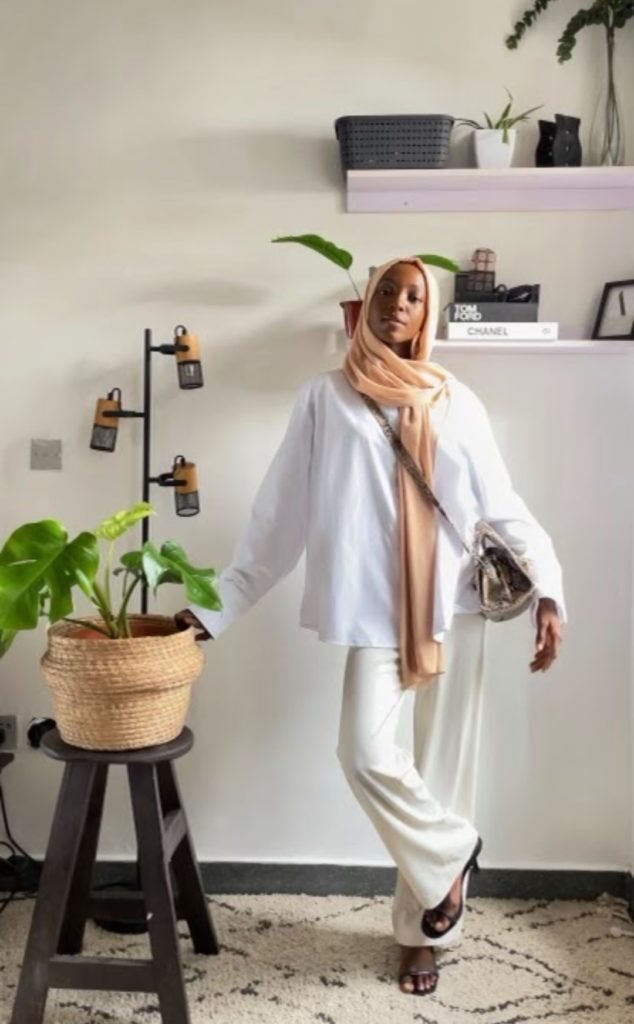
I’m jealous sha. What inspires you?
I’m inquisitive, so most of my content inspiration comes from research. Sometimes, I think, “Has anyone tried to mix this and that?” I get on Google, explore related content and find ways to tweak it based on what’s accessible to me and my audience. I also follow other inspiring creators on Instagram and TikTok.
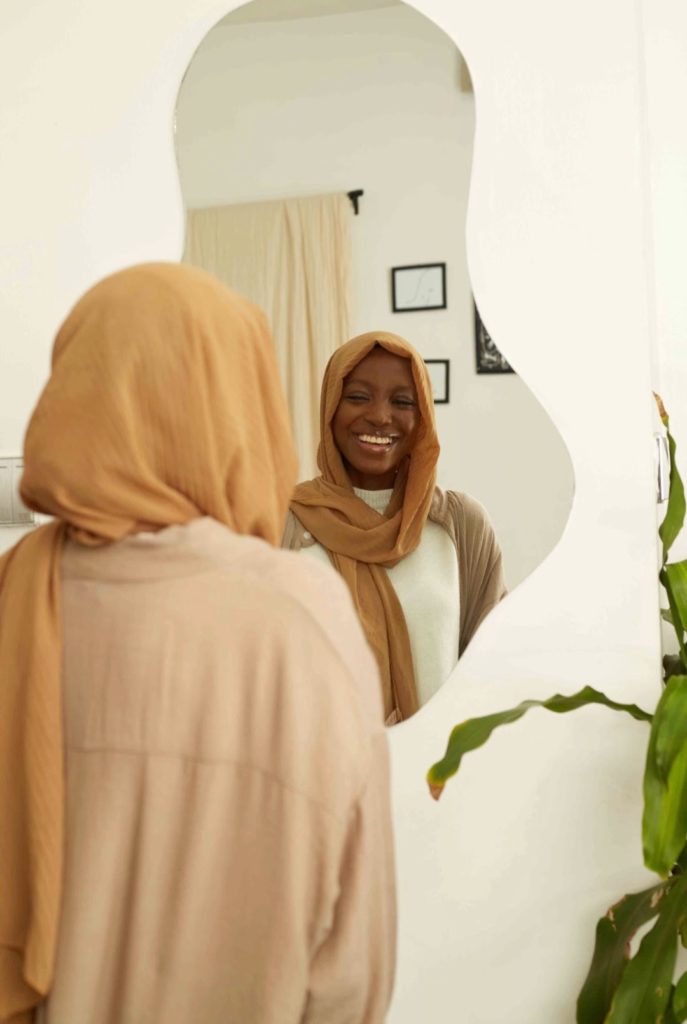
Do you have any challenges as a creator?
Monetising content is my biggest headache as a creator. I’ve realised that I put more effort into building, retaining and growing my audience than on finding ways to monetise my content. There’s a lot of running costs of creating content, especially in a country like Nigeria, where people undervalue creativity. I also wish I had more time. I have a 9-5, and finding balance can get challenging. I’d love to make it my full-time profession, but the decision isn’t simple, especially when you don’t know where your next paycheck would come from. I might as well use this as an open call for a manager because the business side of content is giving me a headache.
Any plans for the future?
I’m taking a certification course to learn how to be better at several things, from wellness coaching to recipe development. I’m also furthering my education and research experience; I’ve gotten an MBA admission to make that happen. These align with my goals of building my lifestyle brand, Bloome Living, and transforming the discourse around wellness and lifestyle in Nigeria. I’m a girl of lofty dreams, so plans might change. Who knows?
Give us food for thought
Here’s one I like even though I don’t know who said it first, but you can live your best healthy life without having to compromise heavily on the food you love and are accustomed to.
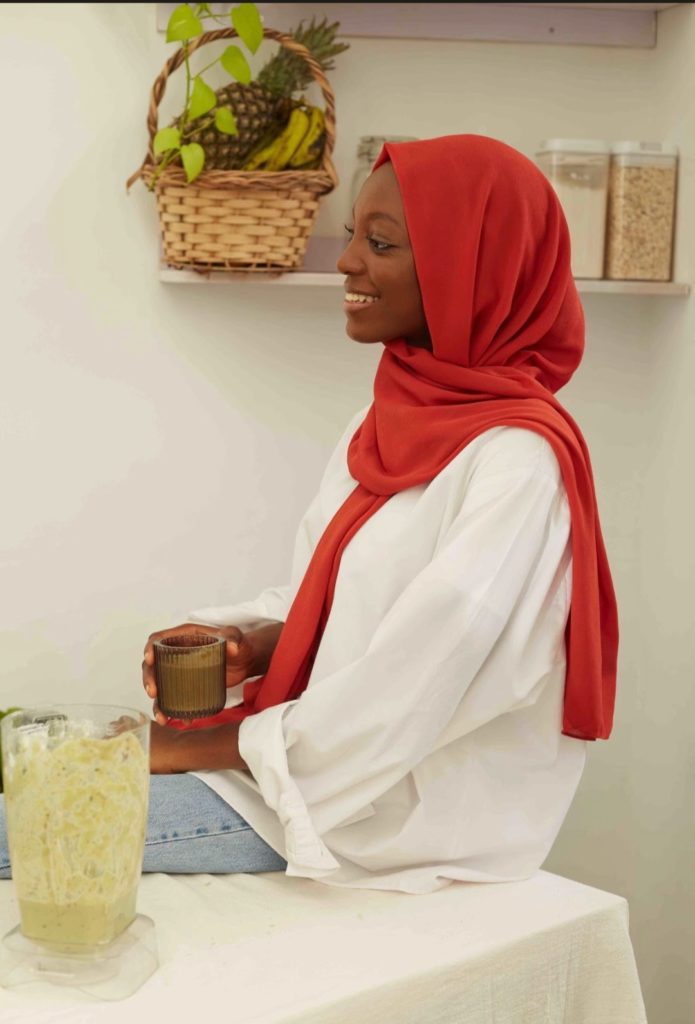
READ ALSO: Creator Spotlight: Sigil on Breaking the System Through Rock Music

